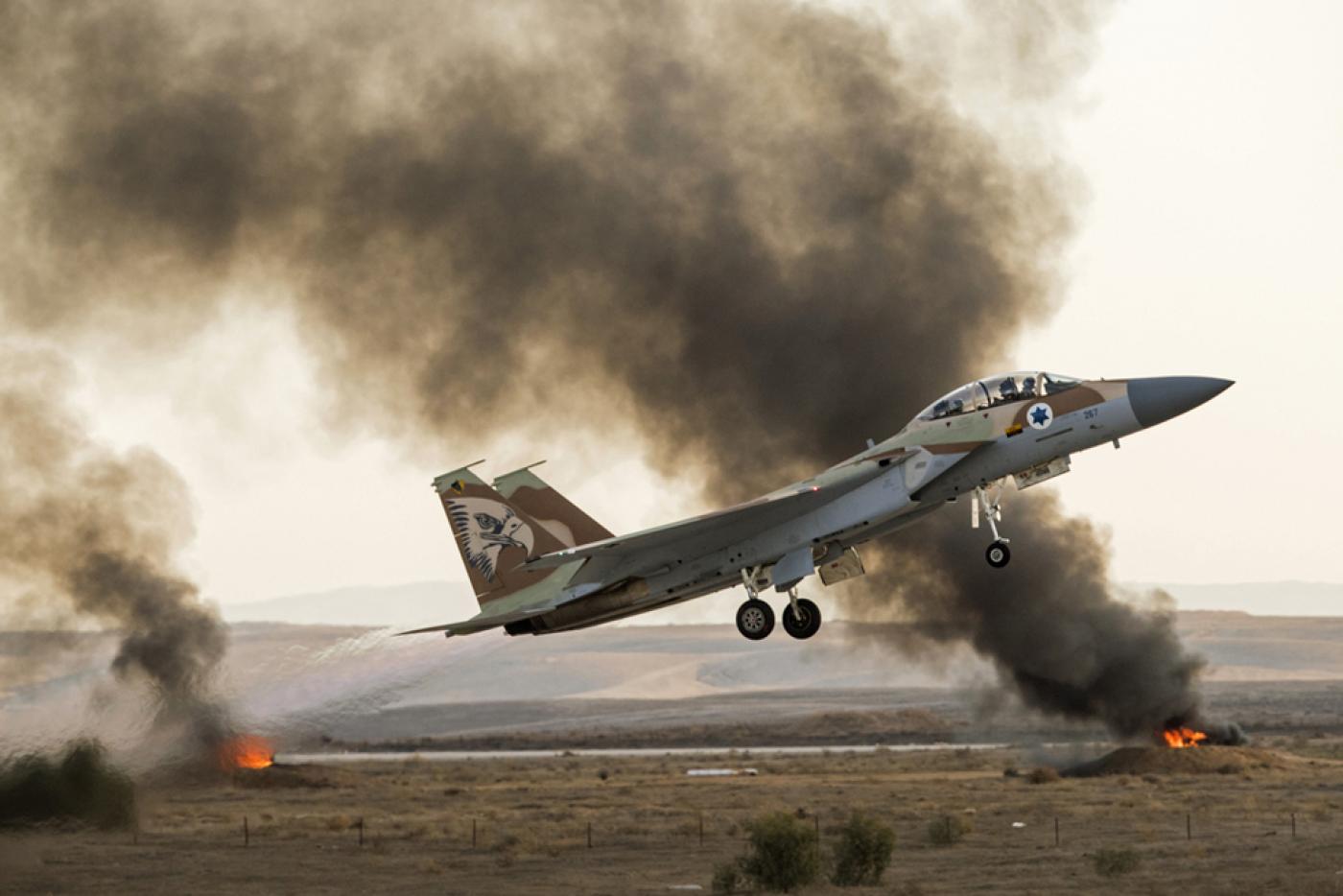Al-Aqsa officials to defy Israeli court over prayer
GAZA: Israeli jets struck a Hamas military target in the Gaza Strip in retaliation for balloon-borne explosive devices late Tuesday, the army said, the fourth such strike in recent days. A Palestinian security source confirmed the strikes, with no injuries reported. The army said in a statement late Tuesday that "fighter jets and aircraft struck a number of terror targets in a Hamas military compound in the northern Gaza Strip." "The strike was conducted in response to explosive balloons that were launched from the Gaza Strip into Israeli territory."
A Palestinian security source in Gaza said a number of Hamas sites, including an observation post, were hit near Gaza City, causing damage but no injuries. Eyewitnesses also described an explosion at a Hamas site in southern Gaza, though the Israeli army statement did not mention such targets. The Israeli strike was the fourth since Saturday, each in response to either balloons or explosive devices hurled at the border fence.
Islamists Hamas have controlled Gaza since 2007 and have fought three wars with Israel since. The so-called incendiary balloons involve flaming devices floated across the border with the aim of starting fires in the Israeli communities and farmlands on the other side. Clusters of balloons have been flown during regular protests and clashes along the frontier.
They largely stopped after an informal Egyptian-brokered truce agreement between Hamas and Israel in November. Under that deal Israel agreed to ease its crippling blockade of Gaza in exchange for calm. Hamas has accused Israel of breaching the terms of the agreement. An Egyptian security delegation met with Hamas leader Ismail Haniya in Gaza Tuesday. At least 251 Palestinians have been killed by Israeli fire since March 2018, the majority shot during the weekly border protests and others hit by tank fire or air strikes in response to violence from Gaza. Two Israeli soldiers have been killed over the same period.
Defy Israeli court
In another development, the Muslim foundation which runs the Al-Aqsa mosque compound in Jerusalem, the Waqf, said yesterday it will defy an Israeli court order barring access to part of the flashpoint holy site. There have recently been scuffles between worshippers and police there over the use of a side building called the Golden Gate, closed by Israel since 2003.
Arguing there was no longer any reason for it to remain shut, Palestinian officials reopened the building last month and crowds of worshippers prayed inside despite the Israeli closure. A Jerusalem court this week gave the Waqf until March 10 to explain why the closure order should be lifted, Israeli watchdog group Ir Amim said in a statement.
"As the Waqf does not formally recognize the Israeli court system, it is unlikely to issue a formal response, in which case the court is expected to approve closure of the building," the NGO said. "It is anticipated that a forced closure by the police will trigger significant numbers of Palestinians rallying or breaking the closure." That, it said, was liable to lead to "a harsh police reaction" at the compound, known as the Haram al-Sharif, or Holy Sanctuary, which includes the Al-Aqsa mosque and Dome of the Rock. Asked to confirm the latest ruling, a justice ministry official told AFP details of the case were "confidential".
'Our right'
"The decisions of the courts do not apply to the mosque of Al-Aqsa," Sheikh Abdel Azim Salhab, the leader of the Waqf council, said in a video clip published on Tuesday. "It is our right, religious and contractual, to access the Golden Gate and keep this door open for Muslims to pray," he said. Salhab and his assistant were briefly detained last week for what police said was violation of an order preventing entry into a prohibited area of the holy site. They were released later the same day but the arrest drew condemnation from Jordan, the custodian of the Haram al-Sharif, in Israeli-annexed east Jerusalem.
Waqf spokesman Firas Al-Dibs said that since the latest dispute erupted Israel had arrested nearly 130 Palestinians in Jerusalem, including senior Muslim officials. It has temporarily barred more than 60 people from the compound, he said. Access to Golden Gate was closed by an Israeli court order in 2003 during the second Palestinian intifada over alleged militant activity there, police say. Waqf officials argue that the organization that prompted the ban no longer exists. The compound is the third-holiest site in Islam and a focus of Palestinian aspirations for statehood.
It is also the location of Judaism's most sacred spot, revered as the site of the two biblical-era Jewish temples. Jews are allowed to visit but cannot pray there and it is a frequent scene of conflict between the two sides. Palestinians fear Israel will seek to assert further control over it, while Israel accuses Palestinians of using such claims as a rallying cry to incite violence. It is in the walled Old City in east Jerusalem, occupied by Israel in the 1967 Six-Day War and later annexed in a move never recognized by the international community.- Agencies











